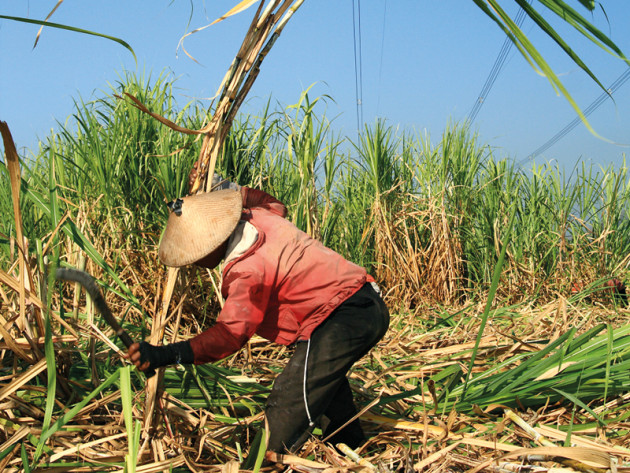
Soapbox: Rum colonisation has to stop
Ian Burrell, the co-founder of African and Caribbean rum brand Equiano, makes the case for protecting Caribbean rum as a local and authentically made protect
Let’s play a game, for a minute. Imagine if I decided to import Scotch whisky into Jamaica, added a little Jamaican sugar and spice to it, then aged it for a further six months in ex-rum barrels to take advantage of the warm tropical Jamaican climate which helps the likes of Appleton Estate, Worthy Park and Hampden Estate rums mature so beautifully. Finally, I bottle and label my new product ‘Scottish whisky finished in rum barrels’ and sell it back in Scotland. There would be an uproar.
In fact, I could see the Scotch Whisky Association beating down my door to sue me quicker than you could say Scotch bonnet rum. Scotch whisky, of course, benefits from a geographical indication or ‘GI’ – a protection that guarantees the product comes from a certain place and is made in a certain way. This protects the local industry and consumers against nefarious companies, like my proposed ‘Scotch whisky’, from brands that misrepresent the said region or style of spirit.
↓
Regular exploitation
The same could be said if I decided to import tequila into Jamaica, adulterated and further aged it, then repackaged it and sold it in the US as Jamaican tequila. Laughable you say? But this exploitation of PDO’s & PGI’s happens regularly in the rum industry. Many countries produce rums with protective GIs, like Martinique, Cuba, Jamaica and Demerara in Guyana. But if you look at some rum regions, their name, heritage, style and authenticity are being exploited by those who only see a colonial model of exporting bulk rum for pennies a litre, with the real value being harvested by blenders and bottlers overseas. Personally, I understand that a Caribbean distillery needs to sell alcohol to make money, so the bulk rum business is an important cashflow for any distillery. But, when your name, region or country is also taken, used and exploited without your control, then that is categorically wrong, isn’t it?
This has been the issue with Barbados. It’s the home of rum, with a rich history of rum-making stretching back centuries. Yet, they currently do not have any say as to how an independent bottle interprets the words ‘Barbados rum’ on their bottle, because they still don’t have a GI. If I buy unaged rum from Barbados, add dark caramel, sugar and spices to it, age it in Cognac casks for a few months, I can sell it as Barbados rum, even though ‘modern day’ Barbados rum-makers frown upon the addition of sugar and spices.
Ironically, the island that gave rum its name is fighting to protect its own name from being used to sell rums that are clearly not made the Barbados way. The liquid may have started on the island, but its development, blending and value is created elsewhere. Seventy-five per cent of Barbados’s rum distilleries have agreed to a protective GI to ensure the future of Barbados rum, but the local government is holding out on making this law because of the objections of one distillery on the island. If the local government doesn’t directly intervene on this subject of national importance, like their counterparts do for Scotch, Cognac, tequila and many other protected categories around the world, then foreign companies will be able to buy Barbados rum cheaply and then play the game of the ‘rum colonisation’ with impunity.
More on rum:
Rum is growing its global presence as increasingly premium products find their way onto the world’s stage. Yet, as time goes by, a legacy of European interference and investment appears to be diluting rum’s ability to ringfence and protect its products. One of the main disputes in the conversation is the long-running attempt by Barbados’s four rum distilleries to reach an agreement on what a rum GI for Barbados should look like. Foursquare, Mount Gay and Saint Nicholas Abbey all favour a GI where all aspects of production and ageing take place on the island. West Indies Rum Distillery (WIRD), owned by French drinks maker Maison Ferrand since 2017, does not.
Keywords:
- US
- Rum
- Scotch
- whisky
- Scotch Whisky
- Caribbean Rum
- import
- estate
- Scotch Whisky Association
- further
- jamaican
- jamaica
- decided
- certain
- bonnet rum
- scotch bonnet
- association beating
- hampden estate rums
- new product ‘scottish
- product ‘scottish whisky
- ‘scottish whisky finished




